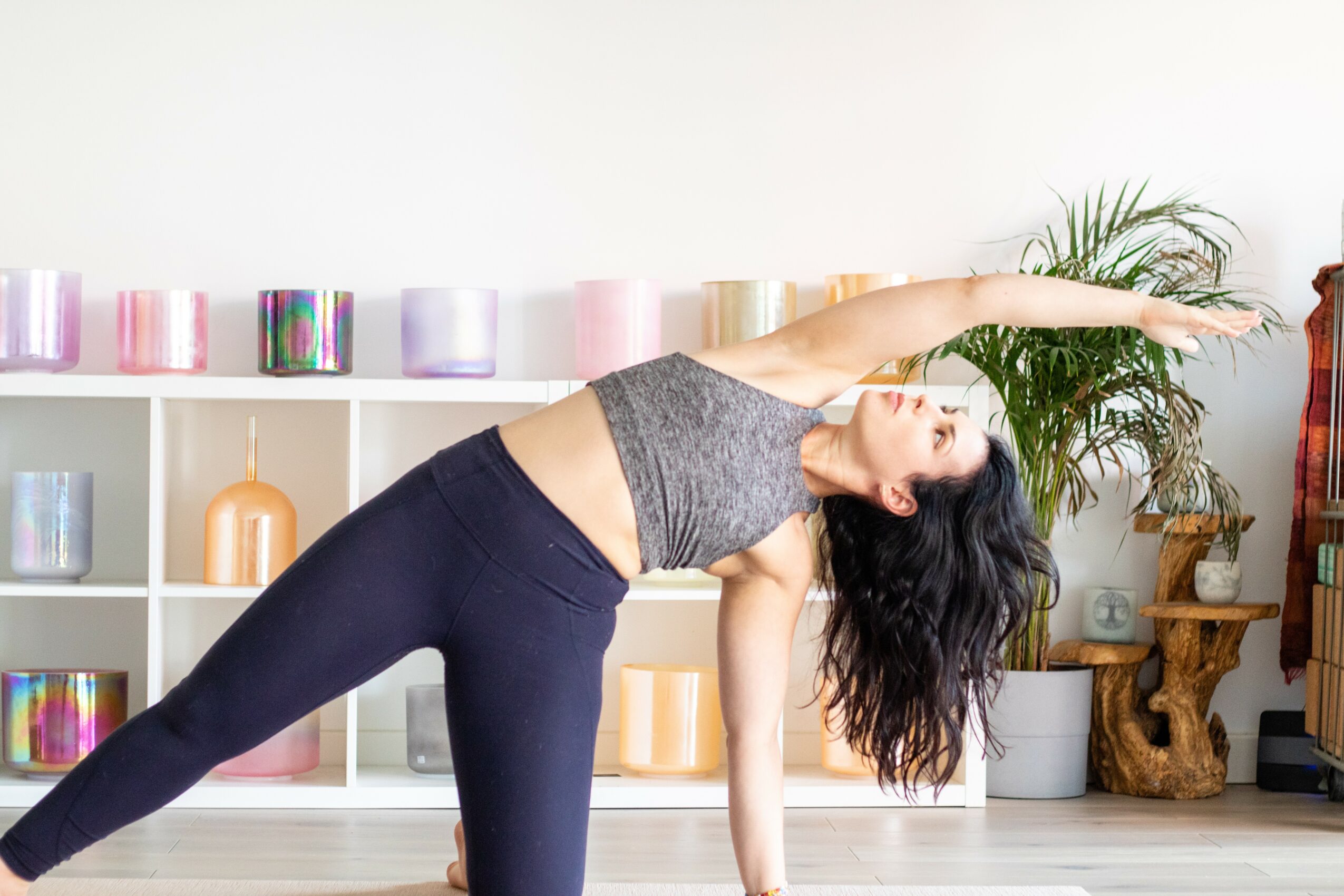

Jordan Ashley shared her story and experiences with us recently and you can find our conversation below.
Jordan, really appreciate you sharing your stories and insights with us. The world would have so much more understanding and empathy if we all were a bit more open about our stories and how they have helped shaped our journey and worldview. Let’s jump in with a fun one: What do you think others are secretly struggling with—but never say?
I think many of us who are “adulting” are silently struggling with the constant feeling that we’re somehow behind in life. Whether it’s in our careers, relationships, finances, or the path we’ve chosen, there’s this unspoken pressure to have it all together. But the truth is, most people are figuring it out as they go. They’ve just gotten really good at making it look like they’re in control, like all the pieces are perfectly in place.
Adulting often brings unexpected loneliness, decision fatigue, and the exhausting mental load of trying to manage everything (work, bills, family, pets, psychological and physical health, etc) while still leaving space for joy. Many of us carry a quiet guilt that we’re not doing enough, or that we’re not measuring up to some invisible standard.
But no one really talks about it because admitting it feels like failure. Even though, in reality, it’s one of the most deeply human things we all share.
Can you briefly introduce yourself and share what makes you or your brand unique?
While immersed in New York City’s fast-paced yoga culture, I began to feel a growing disconnect. I was seeking more than just movement; I wanted spaces rooted in healing, connection, and purpose. That desire, combined with a lifelong commitment to service, inspired me to found Souljourn Yoga Foundation in 2016, a US-based 501(c)(3) nonprofit that goes beyond traditional retreats. We design experiences that cultivate meaningful connection, community engagement, and conscious global impact. We connect directly with local communities, sharing conversations over meals, participating together in yoga and art workshops, and learning about each other’s daily lives in unique and enlightening ways. We visit communities where this kind of exchange has the power to help all participants thrive.
Yoga holds the universal potential to inspire kaivalya—a sense of freedom, clarity, and liberation. It connects people across cultures, empowers personal growth, and promotes economic self-sufficiency. A powerful aspect of yoga is its openness: it doesn’t belong to one belief system or background. It’s a fluid, inclusive bridge to internal well-being that welcomes everyone.
Our name reflects that ethos: “Soul” for seva (selfless service), “journ” for sojourn (a meaningful stay), and “yoga” for union, connection, and balance.
Today, as a PhD candidate, yoga educator, activist, writer, and TEDx speaker, I continue this work with deep gratitude. Souljourn Yoga is both personal and global, a space where yoga meets advocacy, where self-awareness leads to social change, and where community and collaboration are at the heart of everything we do.
Appreciate your sharing that. Let’s talk about your life, growing up and some of topics and learnings around that. What did you believe about yourself as a child that you no longer believe?
Growing up in Santa Monica, California, during the 2000s, yoga studios were everywhere, impossible to overlook. My first encounter with yoga came around age ten, when I attended classes with my mother. It was supposed to be bonding time after my parents’ divorce, but for me, it felt awkward and uncomfortable. I was shy and struggled to keep up.
Yoga took on new meaning when I was thirteen, looking for an escape from P.E. Like many teenage girls, I dreaded gym class. I had asthma, disliked team sports, and felt painfully self-conscious, convinced I was the worst athlete in the room. Thankfully, my progressive Westside middle school offered ‘Independent Study,’ so I started attending adult yoga classes at local studios instead. I was always the youngest in the room by at least a decade, turning up three times a week with a permission slip signed by my yoga teacher to confirm my attendance.
Yoga only truly resonated when I stopped trying to be like anyone else and began moving in ways that felt intuitive and right for me. Practicing alone, my mat became a refuge—a space where I could be completely myself. That was the real beginning of what would become a lifelong journey.
What started as an escape eventually led me to teach yoga. Over time, the practice I once did in solitude evolved into something I shared, first teaching my mother at home and later in public classes in New York. Helping her feel stronger and more at ease in her body became a new form of connection I hadn’t expected. It also reflected a broader truth I’ve seen through my work: teaching, sharing, and supporting others—especially young women—can be a powerful source of care.
Yoga, for me, is about repetition, which is why it’s called a practice. There is no end goal; instead, it’s about how we return to the practice, meet ourselves with compassion, and stay present. Returning to the same poses, breath, and rituals over time helps those patterns ripple into daily life.
Physically, yoga has helped me navigate discomfort, awkwardness, and fear—whether that’s fear of a challenging pose, such as backbends, or fear of being observed. It has given me tools to breathe through those moments. Progress often happens at the edge, where we explore and reclaim our limits. The way I face challenges on my mat reflects how I handle them in everyday life.
Despite how hard it can be to stay present, every time I step onto my mat, it’s a new experience. Being grounded in the now, breathing fully, and releasing what no longer serves me are essential. My yoga practice mirrors how I confront life’s challenges—with patience, awareness, and openness to change.
When did you last change your mind about something important?
The last time I truly changed my mind about something important was when I shifted how I view yoga—and, by extension, how I view myself and progress in life. For so long, especially during my twenties living in New York, I thought the goal was to push harder, to master every challenging pose, and to prove my commitment by how intensely I showed up. That meant attending multiple classes a day, chasing peak poses, and trying to fit the mold of what I believed a “serious yogi” looked like.
But eventually, that mindset began to wear me down. I noticed my body getting tired, my spirit feeling stretched thin, and a disconnect growing between what yoga was supposed to be and what it had become for me. The breakthrough came when I realized that yoga isn’t about performance or perfection—it’s about presence, self-compassion, and honoring where you are in the moment. That meant allowing myself to take rest days, embracing gentle yin classes instead of intense vinyasa flows, and stopping the comparison game altogether.
This change wasn’t just about yoga poses—it shifted how I approach life’s challenges, too. Instead of constantly striving and pushing, I learned the power of surrender and acceptance. I started listening more—to my body, my intuition, and the quiet voice inside that said, “This is enough.”
That mindset shift was freeing. It opened space for me to be more authentic, to show up with intention rather than obligation, and to find joy in the practice itself rather than its outcome. It also deepened my connection to teaching and service, fueling my work with Souljourn Yoga, where yoga becomes a tool for empowerment and collective care, not just physical achievement.
Alright, so if you are open to it, let’s explore some philosophical questions that touch on your values and worldview. How do you differentiate between fads and real foundational shifts?
Differentiating between fads and real foundational shifts in the wellness world can be tricky because the industry is always buzzing with new trends promising quick fixes and miracle results. Fads often come dressed up as the “next big thing”, whether it’s a trendy superfood, a swanky athleisure line, or a new yoga mat company, and they usually offer surface-level benefits that don’t last. They thrive on hype, Instagram viral moments, and FOMO.
Real foundational shifts, however, run deeper. They challenge the way we understand ourselves and, by extension, how we engage with and act in the world. Doing the inner work, embracing introspection, and practicing positivity are small but powerful steps that help us be more present, really putting the *“we”* in wellness.
In my journey both on and off the yoga mat, I’ve seen how easy it is to get swept up in wellness trends. But the practices that truly transform are those that foster connection, self-awareness, and compassion. Foundational shifts endure because they support meaningful and lasting change, rather than quick fixes.
Okay, so let’s keep going with one more question that means a lot to us: When do you feel most at peace?
Honestly, feeling truly at peace is something I’m always working on; it’s not something that happens, but more of an ongoing practice. I wish I had a simple life hack or secret to share, but what really helps me is making intentional space for things outside of work and my yoga practice.
Some of my most peaceful moments come from the simple joys: grabbing a coffee with my husband and taking our dogs for a walk. Whether we’re wandering through the park or just enjoying quiet time at home, these small rituals ground me and bring me back to the present. There’s something incredibly calming about the rhythm of a walk with dogs, the fresh air, and the company of loved ones.
While yoga remains a core part of my life and mission, I also love mixing it up with other movement practices like Pilates, barre, and The Class. They help me connect with my body in different ways and offer a refreshing change of pace. Ultimately, peace for me comes from slowing down, being present, and nurturing connections with myself, my family, and the simple moments that often get overlooked in the rush of daily life.
Contact Info:
- Website: https://www.souljournyoga.com/
- Instagram: https://www.instagram.com/souljournyoga/
- Facebook: https://www.facebook.com/SouljournYoga
- Youtube: https://www.youtube.com/@jordanashley9216
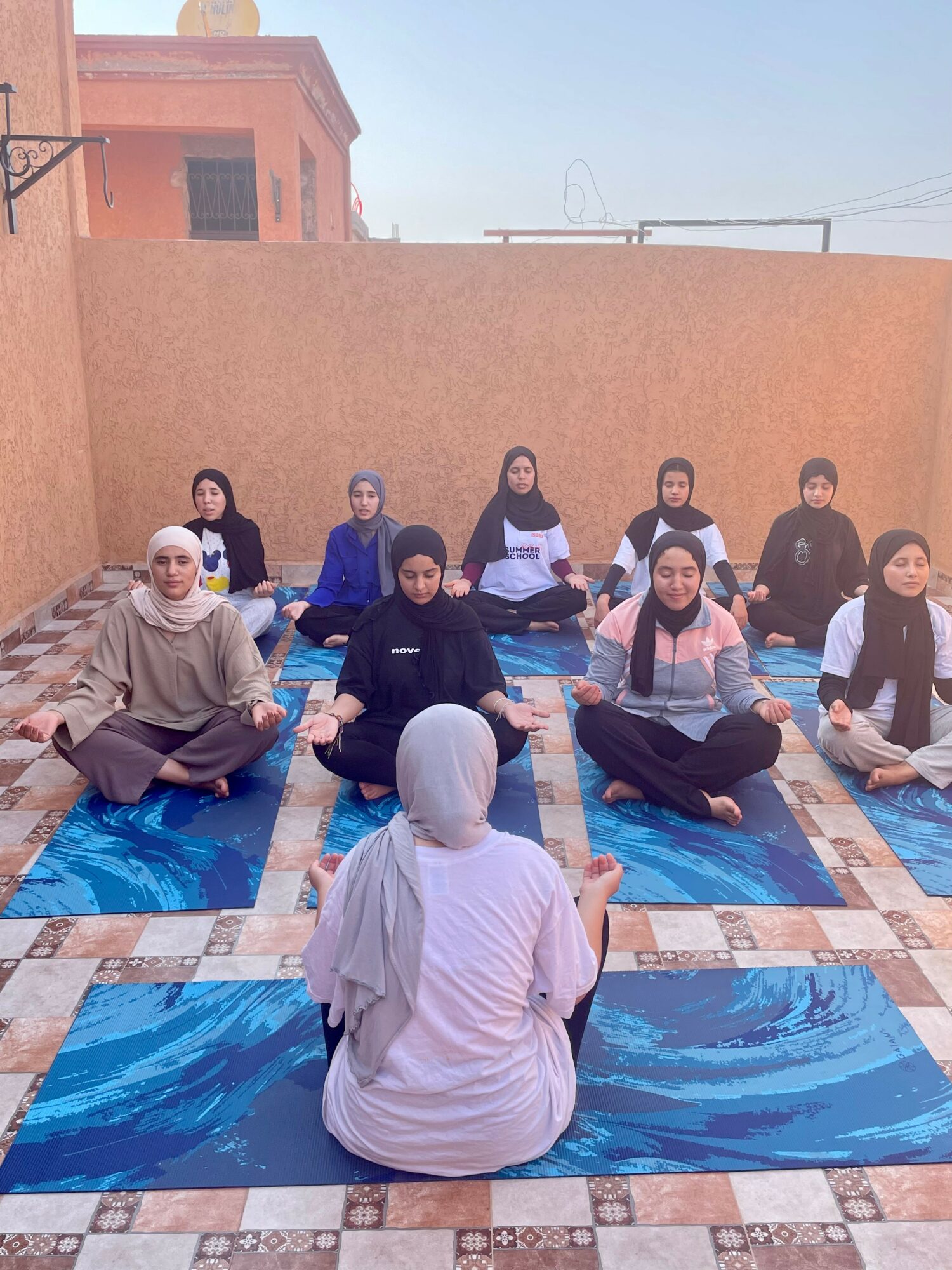
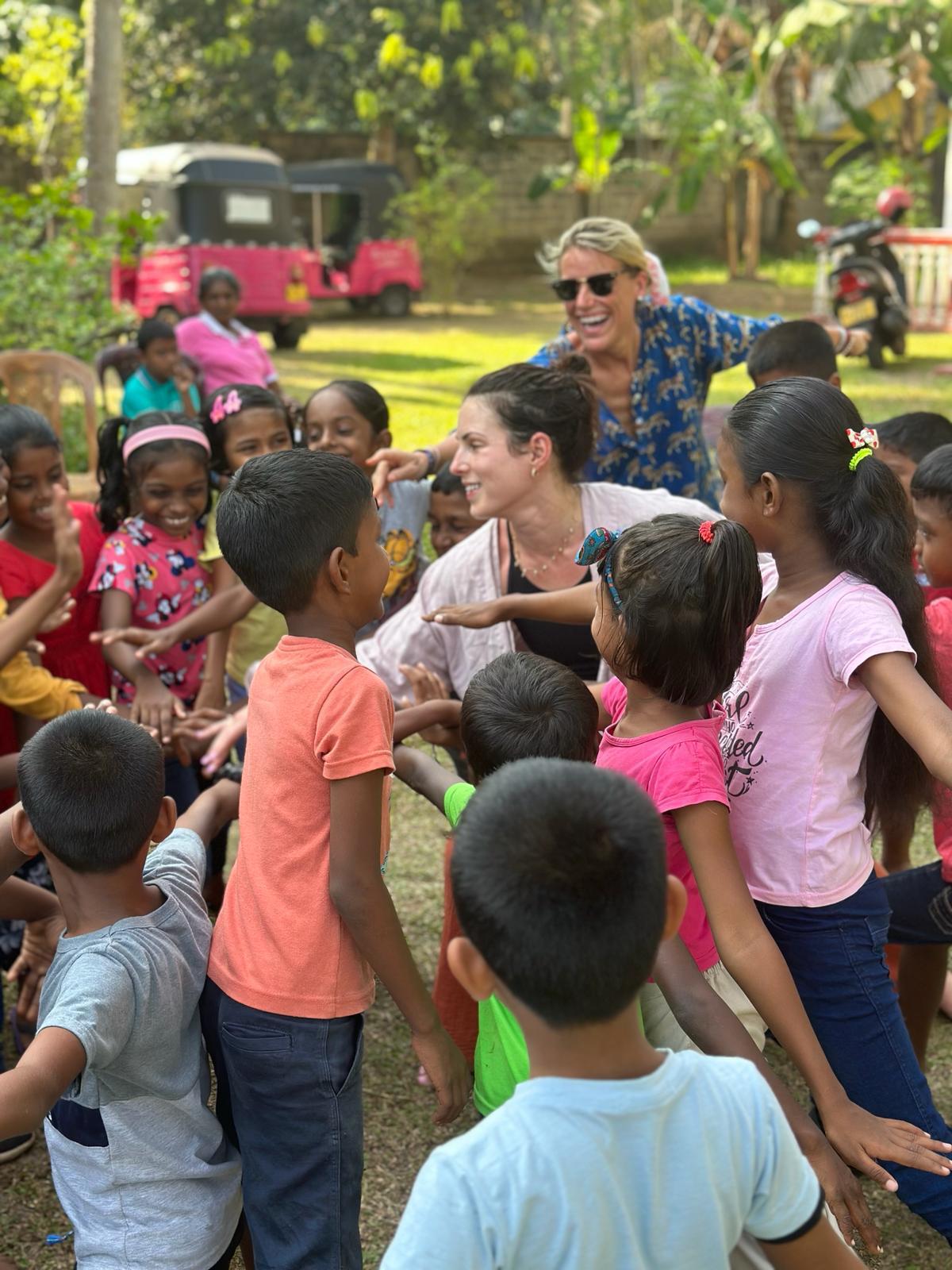
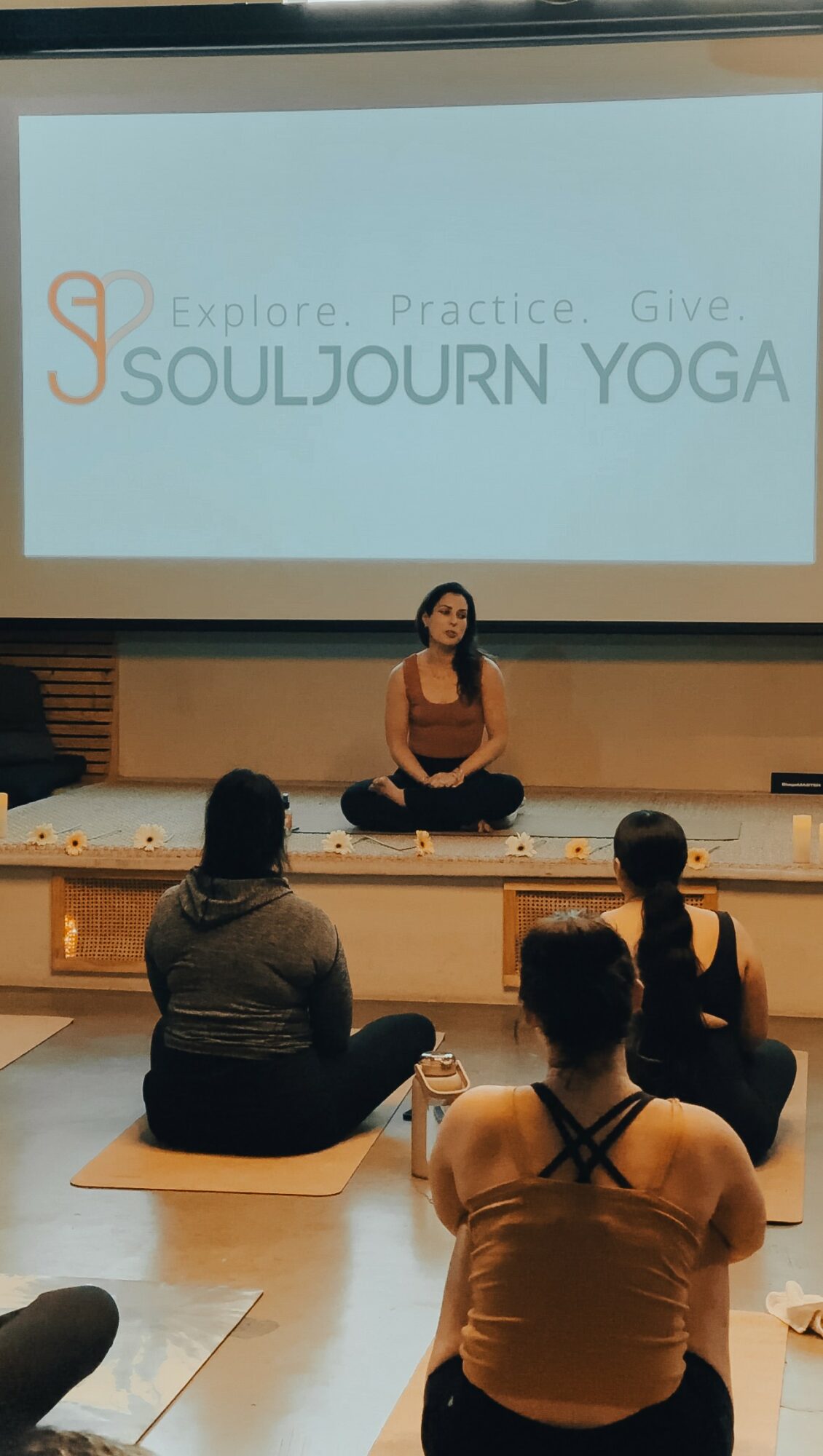
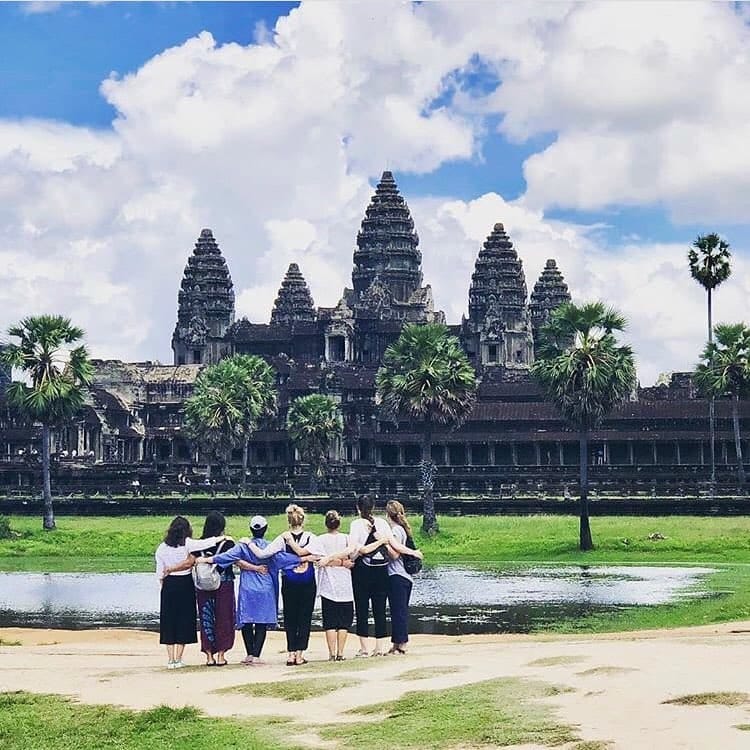
Image Credits
Souljourn Yoga Foundation














